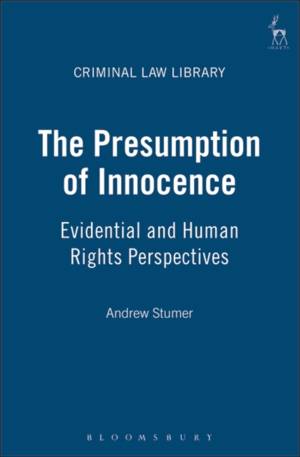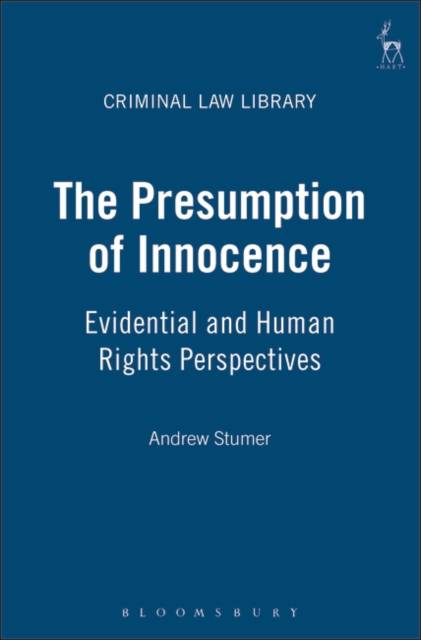
- Afhalen na 1 uur in een winkel met voorraad
- Gratis thuislevering in België vanaf € 30
- Ruim aanbod met 7 miljoen producten
- Afhalen na 1 uur in een winkel met voorraad
- Gratis thuislevering in België vanaf € 30
- Ruim aanbod met 7 miljoen producten
Zoeken
€ 145,45
+ 290 punten
Omschrijving
The presumption of innocence is universally recognized as a fundamental human right and a core principle in the administration of criminal justice. Nonetheless, statutes creating criminal offenses regularly depart from the presumption of innocence by requiring defendants to prove specific matters in order to avoid conviction. Legislatures and courts seek to justify this departure by asserting that the reversal of the burden of proof is necessary to meet the community interest in prosecuting serious crime and maintaining workable criminal sanctions. This book investigates the supposed justifications for the limitation of the presumption of innocence. It does so through a comprehensive analysis of the history, rationale, and scope of the presumption of innocence. It is argued that the values underlying the presumption of innocence are of such fundamental importance to individual liberty that they cannot be sacrificed on the altar of community interest. In particular, it is argued that a test of 'proportionality' - which seeks to weigh individual rights against the community interest - is inappropriate in the context of the presumption of innocence and that courts ought instead to focus on whether an impugned measure threatens the values which the presumption is designed to protect. The book undertakes a complete and systematic review of the UK and Strasbourg authority on the presumption of innocence. It also draws upon extensive references to comparative material - both judicial and academic - from the US, Canada, and South Africa.
Specificaties
Betrokkenen
- Auteur(s):
- Uitgeverij:
Inhoud
- Aantal bladzijden:
- 258
- Taal:
- Engels
- Reeks:
- Reeksnummer:
- nr. 8
Eigenschappen
- Productcode (EAN):
- 9781849460361
- Verschijningsdatum:
- 22/06/2010
- Uitvoering:
- Hardcover
- Formaat:
- Ongenaaid / garenloos gebonden
- Afmetingen:
- 165 mm x 234 mm
- Gewicht:
- 544 g

Alleen bij Standaard Boekhandel
+ 290 punten op je klantenkaart van Standaard Boekhandel
Beoordelingen
We publiceren alleen reviews die voldoen aan de voorwaarden voor reviews. Bekijk onze voorwaarden voor reviews.








